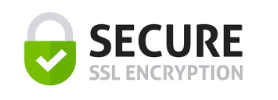Founded in Denmark. We respect your privacy.
Join a worldwide community of language learners
The Languages of Switzerland: A Multilingual Nation
Last updated on
Switzerland is unique for its linguistic diversity, with four national languages reflecting its cultural regions. These languages are German, French, Italian, and Romansh.
1. German
Spoken by approximately 60% of the population, Swiss German (Schweizerdeutsch) is the most widely spoken language, predominantly used in central and eastern Switzerland. While standard German is taught in schools and used in formal communication, Swiss German dialects are used in everyday speech.
2. French
Swiss French (Français Suisse) is spoken by around 20% of the population, primarily in the western part of the country, known as Romandy. This region includes cities like Geneva, Lausanne, and Neuchâtel, where French is the dominant language for both informal and formal communication. Unlike Swiss German, Swiss French is very similar to standard French, with only a few regional differences in vocabulary and expressions.
3. Italian
In the southern region of Ticino and parts of Graubünden, Swiss Italian (Italiano Svizzero) is spoken by about 8% of the population. The Italian spoken in Switzerland is quite similar to standard Italian, though there are some dialectal influences. Italian-speaking Switzerland shares cultural and linguistic ties with nearby northern Italy.
4. Romansh
Romansh is a Romance language spoken by less than 1% of the population, primarily in the canton of Graubünden. Romansh is considered Switzerland’s fourth national language and is divided into several dialects. Despite its small number of speakers, efforts are made to preserve this language through education and official usage.
Multilingualism and National Identity
Switzerland’s language diversity plays a crucial role in its national identity. Most Swiss citizens are multilingual, often speaking at least two or three of the national languages, and English is commonly spoken as well, particularly in business and tourism. This multilingualism fosters cultural unity while respecting regional identities.
Conclusion
Switzerland’s four national languages—German, French, Italian, and Romansh—reflect its rich cultural diversity and regional autonomy. The country’s multilingualism is a vital part of its national identity, with most Swiss citizens fluent in multiple languages. If you’re interested in learning Swiss languages, Talkio offers the opportunity to practice Swiss German and Swiss French, allowing you to deepen your understanding of the unique linguistic landscape of Switzerland. This makes Talkio an excellent tool for anyone looking to engage with Switzerland’s multilingual culture.


